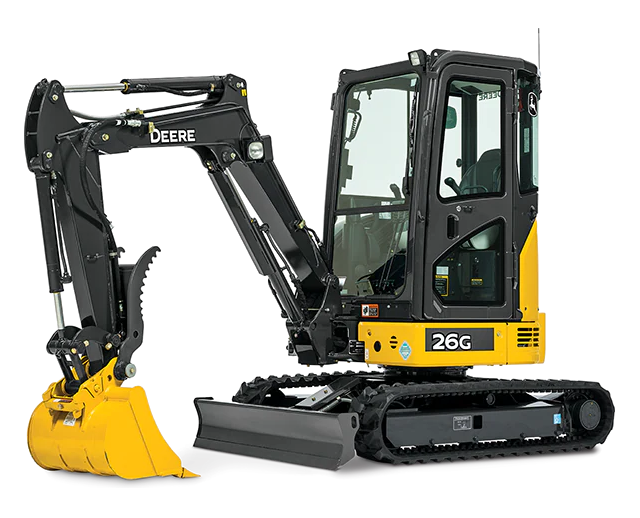Equipment Rental Company: Your Source for All Kinds Of Machinery
Equipment Rental Company: Your Source for All Kinds Of Machinery
Blog Article
Maximize Your Budget by Recognizing the Prices Connected With Building Equipment Rentals
Understanding the full extent of costs linked with building equipment services is important for maximizing your spending plan. What techniques can be utilized to effectively manage these prices and ensure a much more reliable rental experience?
Review of Rental Prices
When thinking about building equipment services, comprehending the associated costs is paramount for reliable budgeting and project preparation. Rental expenses can differ substantially based on a number of factors, consisting of equipment kind, duration of service, and location. The preliminary rental fee usually shows the equipment's market need and its associated functional capabilities, affecting the overall expenditure.
In addition to the base rental price, secondary costs might occur, such as transport fees, fuel surcharges, and upkeep costs. It is crucial to make up these extra costs to precisely examine the overall expense of renting equipment. Additionally, the rental duration can affect prices; longer leasings may get approved for discounted prices, while short-term leasings may sustain greater everyday fees.

Breakdown of Rental Rates
A detailed understanding of rental prices is important for service providers and job supervisors aiming to enhance their spending plans. Rental prices for construction equipment usually are composed of several components, including base prices, time-based charges, and use charges.
Base rates are the core fees related to the service of the tools, often figured out by the kind and dimension of the equipment. These rates can vary considerably, influenced by elements such as devices need, accessibility, and local market fads. Time-based fees, which might be daily, weekly, or monthly, offer to accommodate various job timelines and rental periods.
Furthermore, rental rates may include use charges, which are relevant when tools is made use of past a specified threshold, guaranteeing that the rental firm can make up deterioration. Seasonal demand fluctuations can additionally influence rental prices, with peak construction seasons commonly regulating greater costs.
Furthermore, understanding the rental company's policies regarding maintenance and insurance can give further understanding into the general cost framework. By evaluating these parts, specialists can make informed decisions, ensuring the choice of rental tools aligns with both task requirements and budget plan constraints.
Additional Charges to Take Into Consideration
Understanding the ins and outs of added costs is essential for service providers to handle their overall rental costs properly. Beyond the common rental rates, different auxiliary fees can significantly influence the overall price of devices rental. These charges frequently include distribution and pickup fees, which can vary based on range and logistics involved in delivering the tools to and from the job site.
Additionally, some rental business may enforce gas surcharges if the devices is returned with less fuel than when rented. It is also vital to know potential cleansing costs, especially for specific devices that requires comprehensive maintenance after usage.

Extensively examining the rental agreement and clarifying these added charges upfront can help service providers stay clear of unforeseen costs and ensure that budgets remain undamaged throughout the job lifecycle.
Maintenance and Fixing Expenditures
Normal repair and maintenance costs are usually forgotten aspects that can substantially influence the overall price of construction tools leasings. When leasing devices, it is important to consider not only the rental costs but likewise the potential costs related to maintaining the machinery in ideal operating problem.
Numerous rental companies consist of standard maintenance as part of the rental arrangement; however, discover here extra unexpected malfunctions or considerable repairs can result in extra expenditures. It's important to assess the rental agreement meticulously to understand what maintenance solutions are covered and what duties fall on the tenant.
In addition, tools that is not well-maintained can cause inadequacies on duty site, possibly creating hold-ups and increasing project expenses. To reduce these dangers, it is suggested to perform normal examinations and keep open communication with the rental company pertaining to any kind of issues that navigate to these guys arise during usage.
Insurance and Liability Costs
Insurance and liability costs are crucial components that can substantially influence the general expenditure of building and construction devices services (rental company near me). These prices make certain that both the rental firm and the customer are secured from prospective economic losses developing from mishaps, damage, or theft during the rental period

In addition, clients must understand any type of deductibles or exclusions in the insurance plan, as these can impact possible out-of-pocket expenses. Recognizing the terms and conditions of any kind of insurance protection is important to stay clear of unexpected expenses. Ultimately, budgeting for insurance coverage and liability costs can assist make sure a smoother rental experience and protect against monetary threats related to building and construction projects.
Final Thought
Finally, a detailed understanding of the costs connected with building and construction equipment leasings is important for effective budget plan monitoring. By evaluating rental prices, extra fees, maintenance costs, and insurance policy needs, organizations and people can decrease unforeseen expenses. This strategic strategy not only enhances cost-effectiveness yet additionally guarantees that tasks find here advance efficiently and successfully. Eventually, educated decision-making relating to equipment leasings adds to the general success of building and construction endeavors.
Rental prices can differ dramatically based on numerous elements, consisting of equipment type, period of leasing, and place (heavy equipment rental). The rental duration can affect pricing; longer leasings may certify for reduced prices, while temporary rentals could incur greater everyday charges
By performing complete research study and engaging with trusted rental companies, service providers can effectively navigate the intricacies of rental pricing, inevitably maximizing their economic resources.
Past the basic rental prices, various auxiliary fees can significantly affect the total price of equipment leasing. Rental firms typically provide obligation insurance that covers injuries to 3rd parties or damages to residential property, while equipment damage insurance can cover the expense of repair services or replacement if the leased tools is harmed.
Report this page